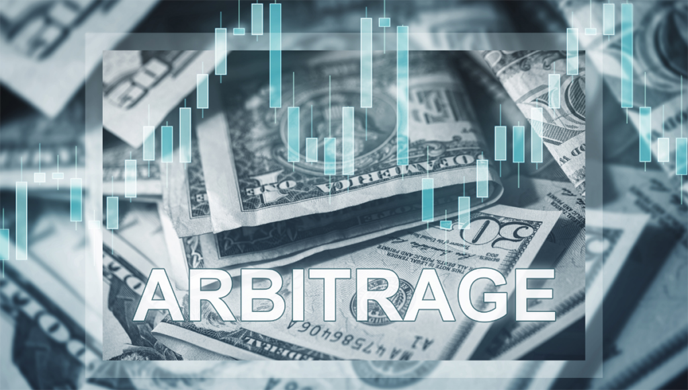Mindblown: a blog about philosophy.
-

Crypto Arbitrage: Strong Stablecoin Pegs, and Trading Gains
It has never been so easy to trade cryptocurrency. There are hundreds of crypto exchanges, DEXs, and DeFi dApps available. Every platform has different liquidity, trading volume, and centralization. Despite these differences, cryptocurrencies have about the same prices wherever you trade. How is that possible? Crypto arbitrage is the answer. Crypto arbitrage traders help balance…
-

Dumb Money vs Smart Money: Using Debt to Get Richer
If you are somebody who cares about money (everybody does, even if they say they do not), then you must understand the difference between dumb money vs smart money. One of the cornerstone difference lies in understanding what debt is and how to use it properly to enhance your finances. On the one hand, debt…
-

UniSwap v3: The Complete Guide
Uniswap v3 ranks among the top decentralized exchange (DEX) platforms— if not the best— on Ethereum. In just four years, it has achieved a trading volume above one trillion, $5B to $10B of total-value-locked (TVL), and 100K+ monthly users. All while offering the lowest possible fees for ERC-20 tokens. This protocol is no longer a…
-

Automated Market Maker: Key to Decentralized Exchanges?
An Automated Market Maker (AMM) is a tool used on decentralized exchanges to allow for the automatic trading of digital assets. This is done by the use of liquidity pools rather than conventional buyer and seller markets. In our recent article on liquidity pools, we likened automated market makers to robotic lifeguards overlooking concrete swimming…
-

What is Liquid Loans? The Premier PulseChain Lending Protocol
How often do you visit your local bank branch these days? Probably not very often. And when you do go there, what are you going for? The reality is that we hardly ever need to go to the bank anymore because we can take care of almost all our financial tasks online. We can pay…
-

Why are Ethereum Gas Fees So High? (Minimize Costs 2023)
Transacting on the Ethereum blockchain requires users to pay transaction fees known as ‘Gas fees’. Gas fees are paid in Ethereum’s native currency (ETH) and are denoted in GWEI which equals 0.000000001 ETH (10^-9). In traditional finance or ‘TradFi’, we often pay fees to transfer funds overseas or when we withdraw cash from an ATM.…
-

What is Decentralized Finance (First Principles of DeFi)
Decentralized Finance (DeFi) is an emerging digital alternative traditional financial systems. Learn the important features of DeFi here.
-

The Best Way to Use Crypto to Buy a House
For many people, it’s a dream come true. You get in early on a promising crypto project, HODL till the price goes to the moon, then cash out and buy a house. Of course, it’s not always that easy, yet there are plenty of people who have pulled it off. But what about actually buying…
-

Why Liquid Loans is ‘True DeFi’
‘DeFi’ stands for Decentralized Finance – and when people first learn about DeFi they often think that, because blockchains are decentralized, then all the cryptocurrencies on the blockchain must be decentralized too. Nothing could be further from the truth. The reality is that a huge number of the cryptos in DeFi are massively centralized, and…
-

What are Admin Keys? (Ultimate DeFi Risk)
For a project to be truly decentralized, it CANNOT have admin keys. Learn more about why we are so passionate about admin key-free protocols.
Got any book recommendations?